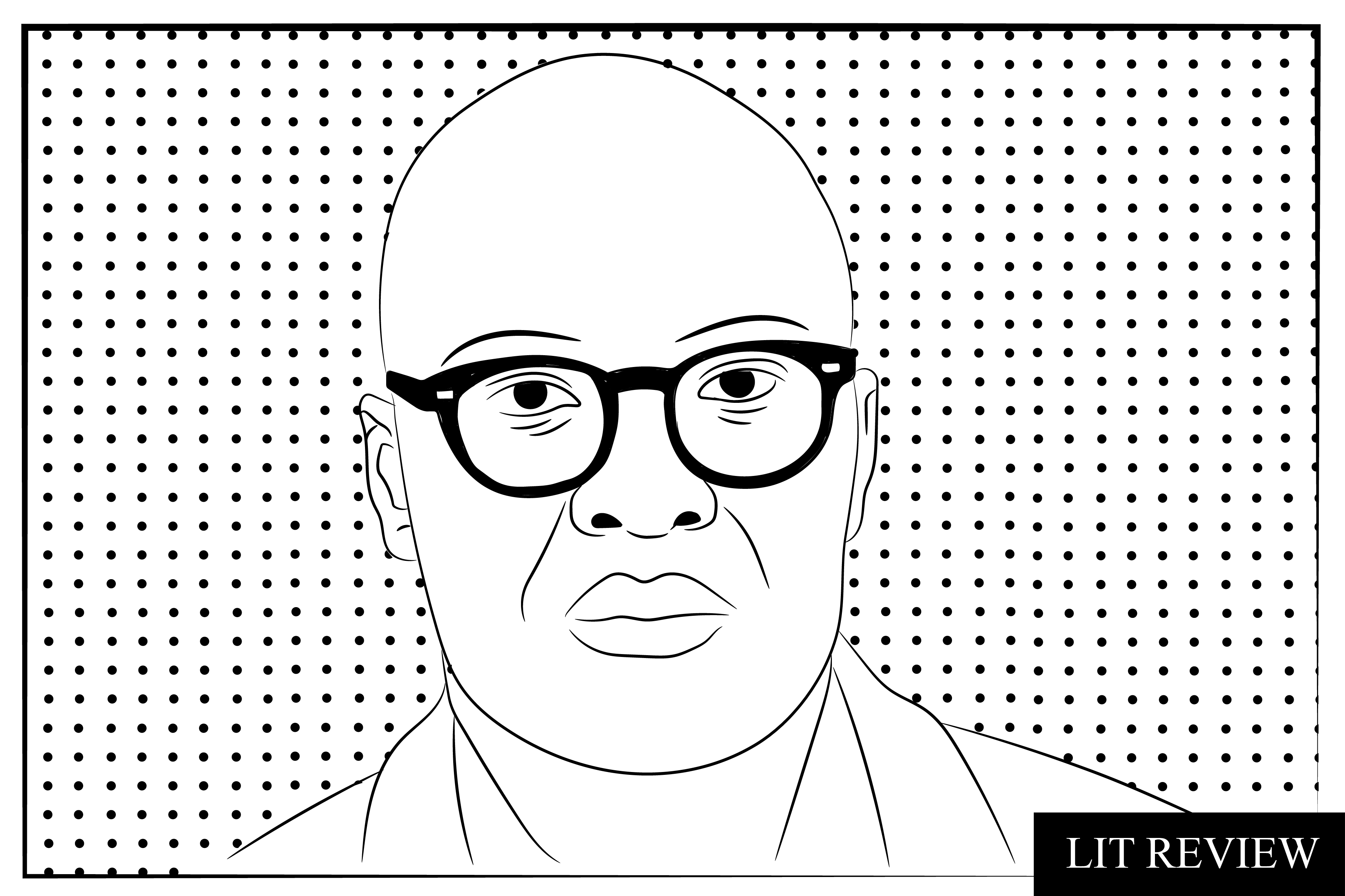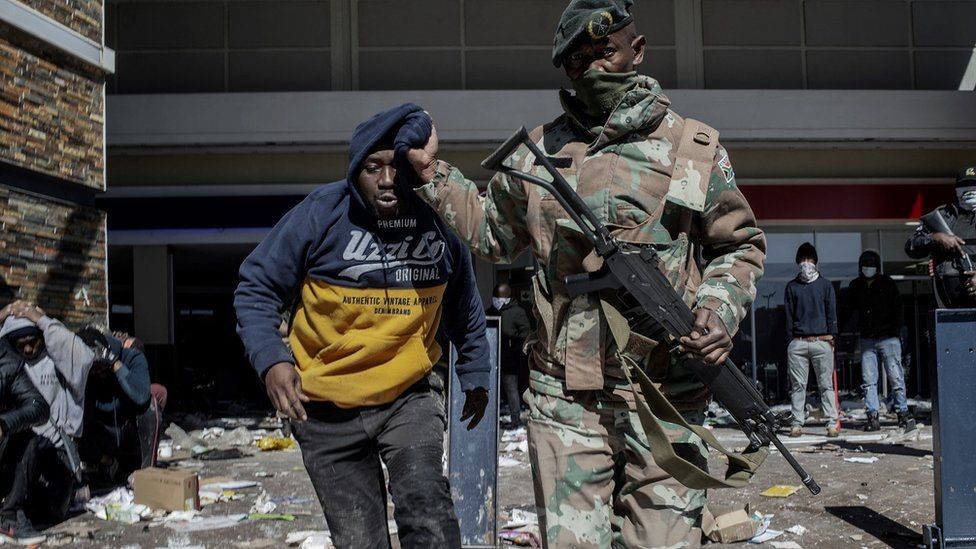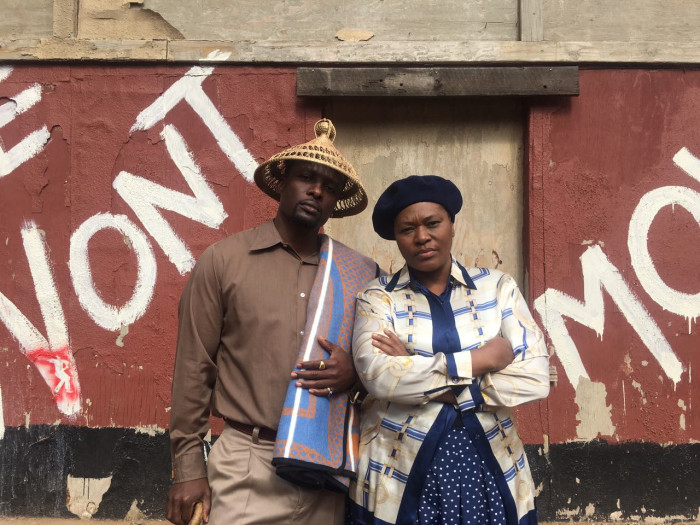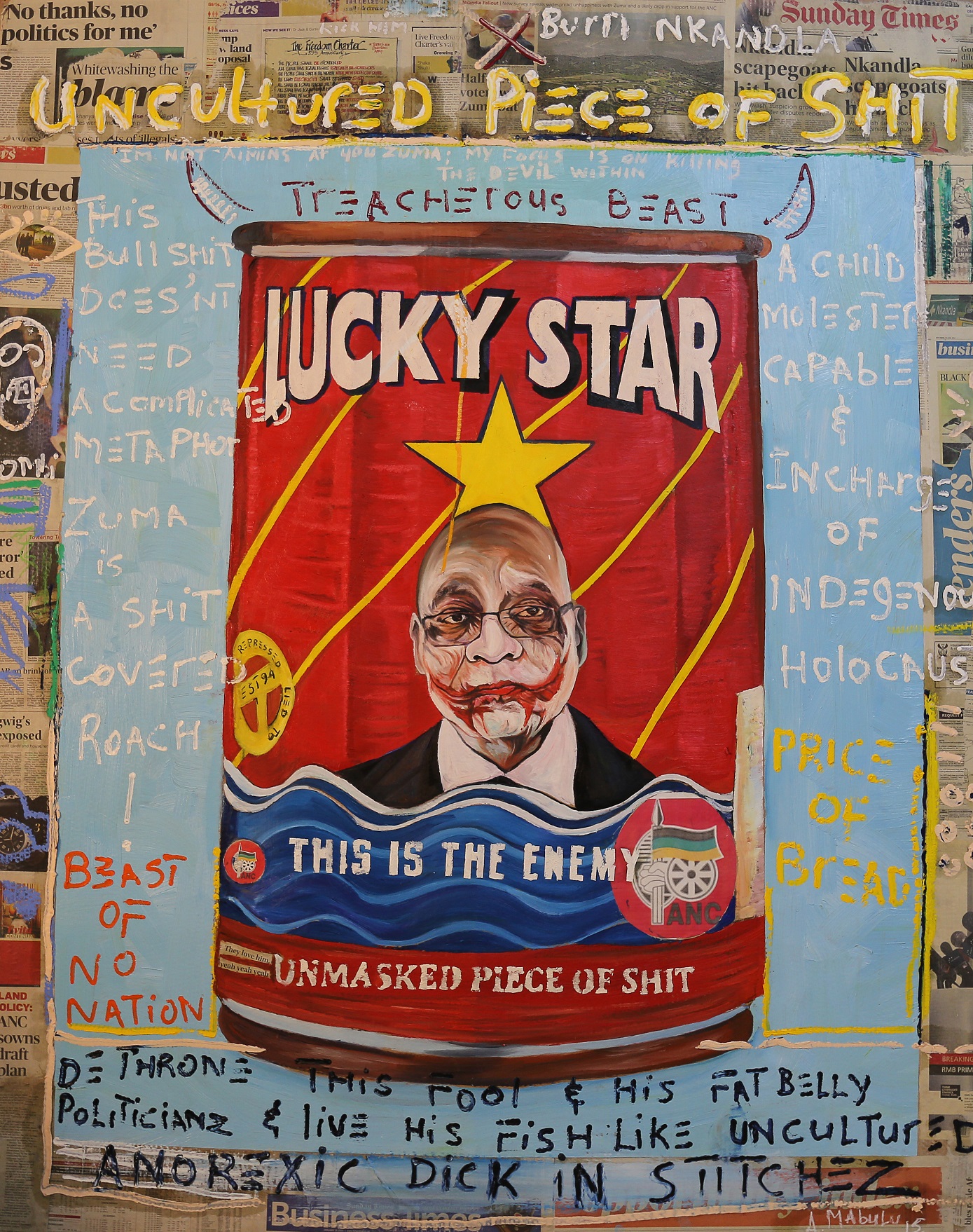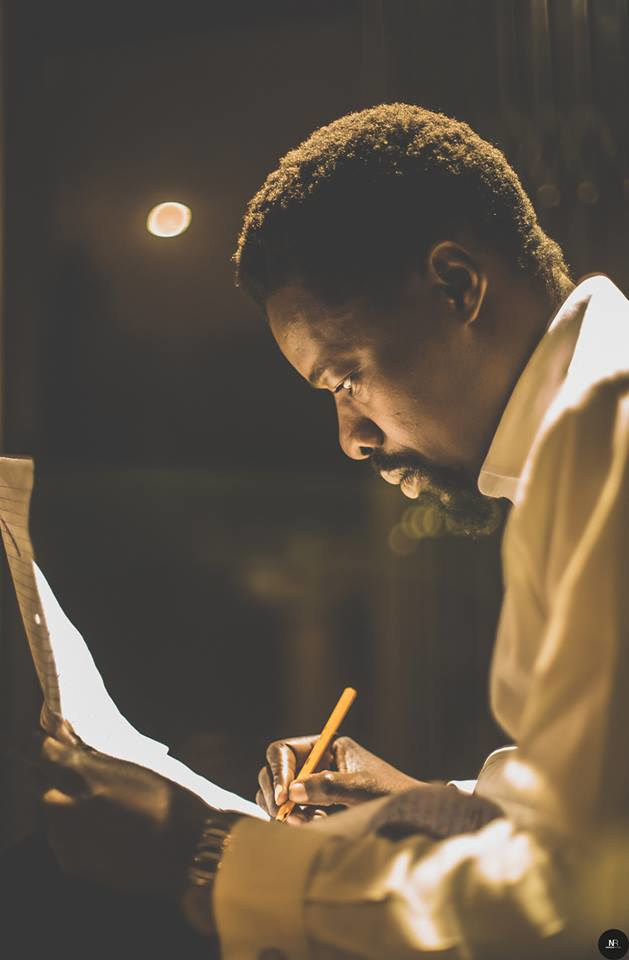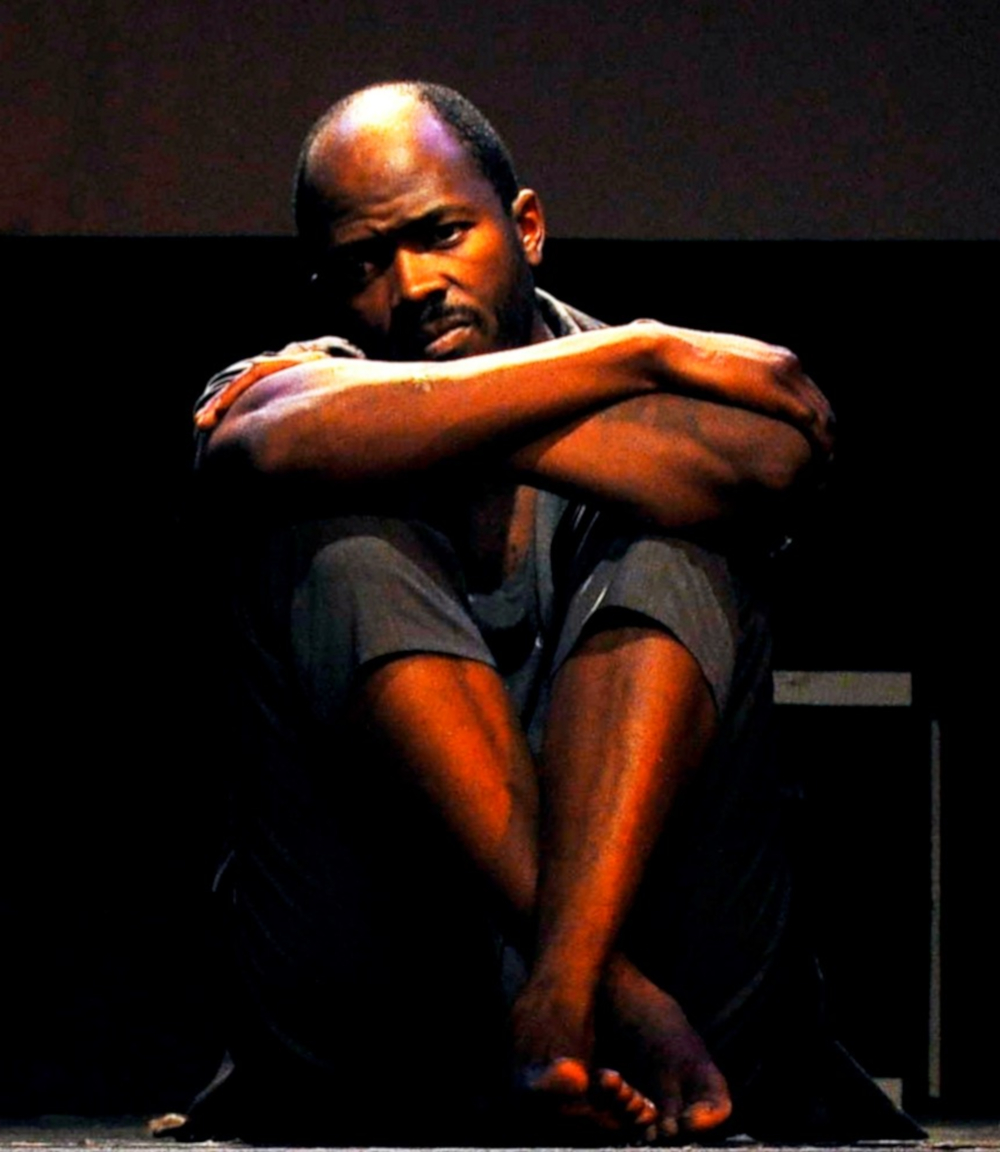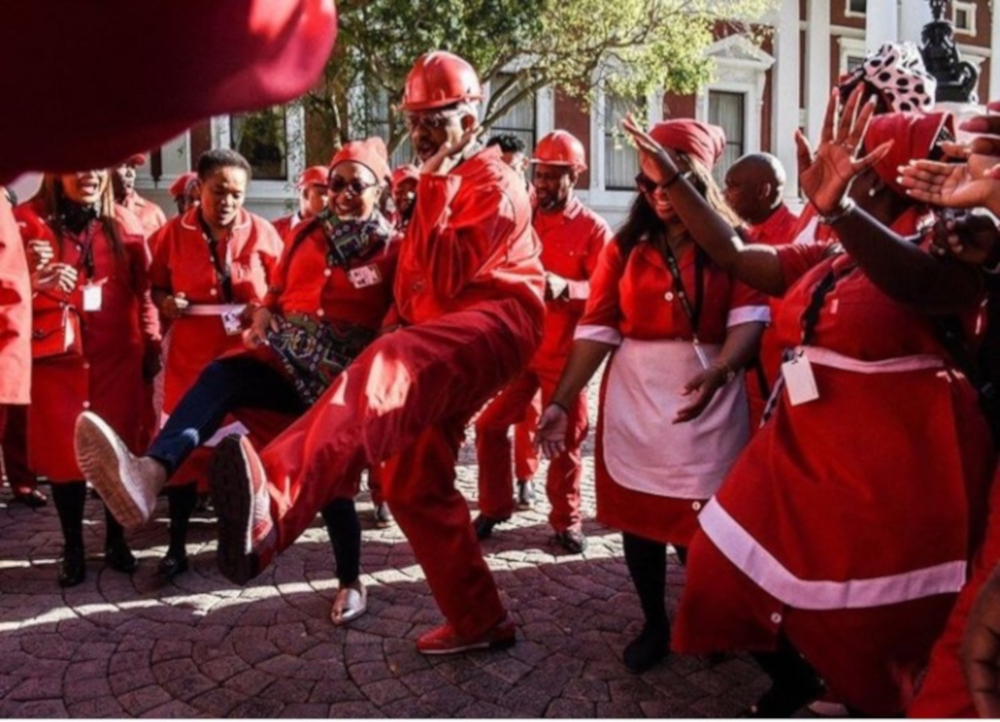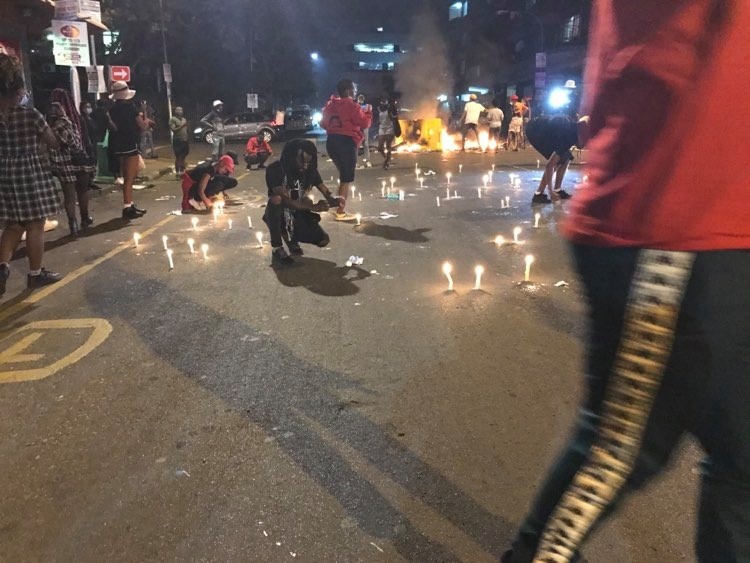We learn a lot about postcolonial Africa from Achille Mbembe’s On the Postcolony (published in 2000). Over six chapters, with a seminal introduction, Mbembe shows us the role of violence in the postcolony and the complicated behaviours of people in postcolonial Africa.
The book uses different types of analysis: economic, historical, philosophical and psychoanalytic. This means Mbembe tries to understand our psychological and social responses to colonial violence. These, Mbembe argues, have continued in postcolonies. This review focuses on the first four chapters and the introduction.
Violence & The Imaginary
We start by explaining violence. There are three motivations for colonial violence. Founding violence is used to create the space for colonisation. The second converts this violence to authority, creating systems that justify colonisation. The third maintains colonisation, attempting to make it permanent. (pg 25)
This entire process creates a circular loop of violence. By following up earlier violence with future violence, there is no accountability for that earlier violence and there is no opportunity to question its legitimacy. Violence, therefore, creates its own legitimacy. Mbembe calls this concept “unconditionality” because there are no conditions for justice or for legitimacy. (pg26) Violence also erases any morality because the methods used to achieve any specific goal don’t matter if those methods can’t be questioned. So the violence empowers itself.
There are also no moral grounds to oppose that violence. Just opposing it makes the opposer in the “wrong”. Violence erases any concept of “right” and “wrong”. This makes the people who receive that violence objects because they have no grounds to oppose what they are subjected to -- and violence justifies whatever harm or oppression they face from the coloniser. Mbembe says that the colonised belong to the “sphere of objects”:
“the colonized could only be envisaged as the property and thing of power. He/she was a tool subordinated to the one who fashioned, and could now use and alter, him/her at will… They could be destroyed, as one may kill an animal, cut it up, cook it, and, if need be, eat it.” (pg 26—7)
“The colonized does not exist as a self; the colonized is, but in the same way as a rock is—that is, as nothing more.” (pg187) But, people obviously are not actually objects, like rocks. So, the coloniser needs to create an “imaginary” -- some narrative about the colonised. So the coloniser creates the narrative that the colonised have impulses, but not motivated reasoning. They act, but don’t think. They have “a bundle of drives, but not of capacities” (pg 26). This narrative justifies the coloniser using violence and having power over the colonised.
This imaginary is quite extensive, including concepts that Africa is a “vast dark cave where every benchmark and distinction come together in total confusion”, a “nothing whose special feature is to be nothing at all”, a “black hole of reason” and a simple society. (pg4—8) Mbembe explains that a simple society is one where there is 1) arbitrary facticity, 2) lack of progress, and 3) person-entities. (pg 3‒4)
Arbitrary faciticity means things are just because they are. There is no reason things are. People just do things according to custom. Violence is acted against anyone without justification. This is called “arbitrariness”. A lack of progress means time is frozen and the society is burdened by superstitions, spells and charms. Person-entities replace the value of productivity with enchantment and these persons are predominant over individuals. (pg 3‒4)
Africa was also considered self-destructive, with practices that harm and cause arbitrary violence. This imaginary justifies a process of grooming where the colonisers supposedly civilise the colonised (ironically through harm and arbitrary violence).
Domestication & Delegation
Because Africans are considered objects, they are forced into labour to become producers of wealth for the colonisers. (pg 28) Being an animal meant the colonised lived for the uses and pleasures of the colonisers. This also created a relationship of domestication, where the coloniser perceived the colonised as something to be groomed and given “affection”.
“The colonizer might inculcate habits in the colonized, treat him/her violently if need be, speak to him/her as a child, reprimand or congratulate him/her” (pg 27)
The outcome, therefore, was for the coloniser to make the colonised a controlled subject, which could make decisions, work for themselves, be productive (to give the coloniser wealth), but under strict conditions, surveillance and punishment. (pg 31) This is like the relationship between an animal pet and its owner. The colonised could also achieve the recognition of the coloniser by adopting approved behaviours. For Mbembe, this merging of “subject” and “object” is the concept of the “native”.
“Improving the lot of the colonized, and making equipment and goods (trade or non-trade) available to them, was justified by the fact that they were to be enrolled into the structures of production” (pg 31)
Mbembe also explains this as a paradox. The coloniser believes that the violence and cruelty they act against the coloniser is a burden. They believe this because they see the violence as a gift to the colonised “proposing to relieve its object of poverty and free it from debased condition by raising it to the level of a human being.” (pg 34) The coloniser conceives of themselves as a “guardian” and the colonised as a “protege” creating a “family state” and merging violence with “kindness”. But this form of family also denies the colonised any form of agency, making them “virtually a stranger in his/her own home.” (pg 35)
Violence could occur in public or private. In fact, the state gave powers to private individuals to act violently against the colonised, a process of “delegation”. Powers were given to particular corporations or middle people to enact violence on the colonised (bottom people) on behalf of the colonisers (top people) or for themselves. Mbembe compares this to feudal systems where “royal rights” and immunities were granted to non-royals who could use certain “royal power” like “raise troops, levy taxes, and wage war”. This meant the colonised could receive random, consistent violence anywhere from private individuals. It also meant they suffered micro-aggressions. (pg 29)
Delegation also allowed for African business to be co-opted as intermediaries between the colonised and colonial powers. Mbembe explains how some Africans set up business in agriculture and raw material which allowed colonisers to have roots in village communities and set up relations between state, society and market. (pg 40)
Allocation & Fiscality
Organising the state, society and market through delegation of power and violence is something which has continued in postcolonial societies. Mbembe explains that foreign investors still have close relationships with postcolonial society through the businesses which organise resources and ties with the governments which control the resources. Postcolonial governments in Africa use the revenue from these resources to “1) structure local systems of inequality and domination; 2) facilitate the formation of coalitions or inflame factional struggles; 3) determine the types of external support that these elites enjoyed.” (pg 41)
Mbembe identifies various ways these resources are used to maintain control such as, “tax breaks, subsidizing of inputs, widespread use of bank overdrafts, state approval for foreign loans, debt cancellation, preferential access to state contracts” (pg 51).
Mbembe calls this process “allocation” where the resources of the state are distributed to maintain power, not to achieve productivity or material needs. This also means resources are allocated without the expectation for people to be productive. Salaries are paid even without the requirement of labour. This also means people that receive resources are in debt to the state, rather than the state existing to serve people. People are coerced to submit to the state’s authority or receive no utilities. (pg 42) If people are not obedient, their rebellion is crushed with force and violence. Mbembe calls this combination of appropriating livelihood, allocating profits and extracting through coercion, fiscality. (pg 66)
So, postcolonial states do not achieve harmony through reciprocal duties, but rather through coercion and violence. Mbembe says this is not the same as concepts of “democracy” and “civil society” where the state is made legitimate (and conflict is managed) by limiting violence and allowing all people to be free and make equal decisions. (pg 38). For Mbembe, postcolonial African states use intimidation and violence to manage conflict. Furthermore, people become dependents of the state. (pg 45)
Allocation also explains the widespread use of public-private utilities where the state appropriates and controls all aspects of production and organisation of labour and then enters into business with private corporations or private persons, who receive “benefits, salaries, and perks.” (pg 44) The state controls all production and distributes revenue to its allies and business partners, rather than its people.
At the same time, postcolonial states could also transfer wealth from the rich to the poor for health costs, ceremonies, social security and the purchase of titles. Obligations are placed on wealthier citizens to redistribute wealth. Ultimately, the state creates and decides inequalities, the organisation of production and the allocation of revenues. Mbembe calls this the trinity of violence, transfers and allocations. (pg 44‒5)
Allocation is unsustainable because there is no expectation of productive labour for salaries. It exists only to regulate power. Mbembe called this “circularity”:
“The institutions with which it equipped itself, the procedures that it invented, the techniques that it employed, and the knowledge on which it rested were not deployed to attain any particular public good. Their primary purpose was absolute submission. The objective of this sort of sovereignty was that people obey.” (pg 32)
Revenue also relies on international export markets. So, the international community has a lot of power to force these states into structural adjustment programmes which threaten that very system of allocation by reducing the spending of state revenues.
Mbembe criticises the international community’s assumption that this would lead to stable democracy. By disrupting allocation, structural adjustment programmes remove the method postcolonial societies are using to manage conflict and violence, allowing for a return to arbitrariness. (pg 57) This also creates a “subsistence crisis” and increases in “material scarcity”. (pg 81) These factors create violence, instead of democracy.
Underground & Parallel
Postcolonial states require a strong military to implement violence and control economic resources. So, economic activities become military activities. If allocation is threatened, conflict breaks out.
“Today, these countries, when not torn by bloody civil wars, find themselves in a situation where resorting to brute force has become the rule, whether in transactions between what remains of the state and individuals, or in ordinary social relations.” (pg 50)
Mbembe explains that African integration into the new international market is currently threatened by shifts in international divisions of labour, the volatility of export markets, globalisation and the growth of free trade. (pg 52) This has led to the growth of underground markets, transactions and deals. This underground economy challenges the power of the state and creates conditions for widespread violence. Mbembe identifies:
“the direct link that now exists between, on the one hand, deregulation and the primacy of the market and, on the other, the rise of violence and the creation of private military, paramilitary, or jurisdictional organizations.” (pg 78‒9)
Mbembe states that “new operators (traffickers, brokers, leaders of bands, marabouts, traders of various stripes)” raid and seize economic resources through violence. (pg 72) He compares this to the use of violence historically to organise the state and suggests this threatens the social fabric of postcolonial states.
“Almost everywhere, the state has lost much of that capacity to regulate and arbitrate that enabled it to construct its legitimacy. It no longer has the financial means, administrative power, and, in general, the sorts of “goods” that would have enabled it to resolve politically the conflicts that have erupted in the public domain and led, almost universally, to violence previously containable within more or less tolerable limits.” (pg 76)
Another factor which makes postcolonial states unstable is the lack of clear indicators of power. Someone being in a senior position due to allocation does not mean they have power. At the same time, with many underground and paramilitary operations, people outside of the state can have a lot of power. Mbembe says this creates “indirect private governance” where “parallel decisions coexist with centralized decisions” (pg 80). Groups with real power are constantly shifting, each person works for their benefit, there are no obligations to the centralised authority and instructions from above are distorted or disobeyed below.
This creates a society where citizenship depends on access to this parallel economy. (pg 84) The strong have immunity over violence and the weak are forced to labour. (pg 82) This usually results in the police and security forces having a lot of free reign to collect money through “road blocks, raids, forced tax collection, illegal seizures, rackets, and a host of special favors”. (pg 83)
This parallel economy is organised around forced taxes, where each power takes tax for itself. So, tax is not a collective contribution to a public good. It is a violent removal of money from people. Some of these taxes are used to fund the violence which collects them and maintains power within the parallel economy. (pg 86‒88)
Ultimately, the parallel or underground economy seeks to re-establish power which has been destabilised by the weakening of the state. So, the push to liberalise and create market economies in Africa through structural adjustment programmes creates a vacuum for widespread violence and contests for legitimacy and control.
Entanglement & What Africa is Not
Returning to the West, Mbembe explains that the Africa that colonisers observe is actually an Africa they have imagined and created. Mbembe states the West considers itself the only “self” and Africa as a “nothing”. This, he argues, is worse than Africa being considered an “other”. But also, the West defines its own being by comparing itself to Africa's supposed non-being. So even the very definition of the West relies on Africa -- on the imagined Africa. (pg 4) Even modern social sciences empower this imaginary. Mbembe suggests that the same view of Africa during colonialism remains today.
Mbembe does recognise “terrible movements” in Africa but criticises the way Western social sciences have understood these events. “Every representation of an unstable world cannot automatically be subsumed under the heading “chaos.” (pg 8) For Mbembe, dominant theories misunderstand African postcolonies because they prioritise establishing some immediate economic goal. In other words, they are so focused on fixing Africa that they do not understand Africa. He calls these theories ”social engineering”.
“the current fads for “civil society,” “conflict resolution,” and alleged “transitions to democracy,” the discussion, as habitually engaged, is primarily concerned, not with comprehending the political in Africa or with producing knowledge in general, but with social engineering” (pg 7)
These theories erase complexity, ,em>“time as lived”, and portray Africa only by what it lacks. “We now feel we know nearly everything that African states, societies, and economies are not, we still know absolutely nothing about what they actually are.” (pg 9)
Mbembe recommends greater ethnography, psychoanalysis and understanding of the ways Africans pursue meaning, and a method called “longue durée” which studies long-term historical structures. He also criticises supposedly progressive theories, such as Marxism, which separate objective structures, such as economic conditions from a “subjectivity of representations” which is the way people are represented, observe, understand or create meaning. (pg 6) For proof that many social theories don’t try to understand Africans or produce knowledge, Mbembe points to the lack of study on African languages. “Knowledge of local languages, vital to any theoretical and philosophical understanding, is deemed unnecessary.” (pg 7) Ultimately, many social theories undermine our understanding of Africa and meaning.
Instead, Mbembe wants us to consider the postcolony as a space of “displacement and entanglement”. This means that people within the postcolony are not only engaging with the material world.
“the postcolony encloses multiple durées made up of discontinuities, reversals, inertias, and swings that overlay one another, interpenetrate one another, and envelope one another: an entanglement” (pg 14)
They have subjective experiences of time and the pulls within their world, which motivates their actions and the way they choose to exist, which Mbembe calls the “life world”. (pg15‒16) The “time of entanglement” is a nonlinear experience of time, combining different presents, pasts, and futures. For Mbembe, the present is just a combination of absences (the absence of the future and past). Similarly, the time of entanglement are interlocking events, which can’t easily be modelled into a simple explanation.
“African social formations are not necessarily converging toward a single point, trend, or cycle. They harbor the possibility of a variety of trajectories neither convergent nor divergent but interlocked, paradoxical.” (pg 16)
Multiplied Identities & Intimate Tyranny
So now we can ask, what is a postcolony? Mbembe defines postcolonies as “societies recently emerging from the experience of colonization and the violence which the colonial relationship involves.” (pg 102) Postcolonies are organised by corporate institutions and political machinery which exercise control through violence. Its subjects survive by transforming and multiplying their identities. Both the institutions and people engage in “political improvisation”. (pg 102)
They create official codes of being and meaning through administrative and bureaucratic practices. For instance, postcolonial governments set up ceremonies to dramatise their magnificence where the population joins in, applauds and participates in family-like bonds. Because of this, the people in postcolonies are not easily observed as dominated or in revolt, but instead cooperate with celebrations of power. (pg 102) Mbembe calls this kind of cooperation, “conviviality” (friendliness). “An intimate tyranny links the rulers with the ruled”. (pg 128) If social taboos are broken, this happens in a friendly manner, which also respects and upholds them. (pg 112) Intimate rituals internalise and reaffirm tyranny. (pg 128)
“Yelling and ululating, gesticulating with bodies contorted, everyone would cheer the passing cavalcade of cars, shattering what Rimbaud called “the absurd silence of the stammerer” and content to sustain a link, if only for a second, of familiarity—of collusion, even—with violence and domination in their most heady form.” (pg 123)
Each space has its own logic and official code, so people have to negotiate power differently in each space. This results in them having multiplied identities. A lot of these codes are enforced through obscenity, humour and excess. So, people create meaning for themselves by taking part in grand gestures, excessive remarks/jokes and ceremonies. Governments refer to themselves with grand metaphors. People create informal translations of these metaphors, using sexual orifices, bellies and mouths. This use of absurd language serves to negotiate power. (pg 104‒7) Rulers are constantly trying to rewrite these “mythologies of power” and the ruled-over create many different interpretations. This could be considered a resistance, but is more accurately a way to manage conflict. (pg 108)
Multiplied identities also create situations where people praise their rulers one day and protest against them the next. The dominated have dual identities of domestication and rebellion. (pg 111) People live in simultaneous realities in public and underground, often performing their real lived realities underground and performing to the rulers in public. Their living relations can also be secret, through a series of “fixes” which negotiate power and economy underground. This also creates an overload of identities, which contributes to postcolonial life existing in excess. (p 147‒8)
The ruled-over also recognise that the ruler does have power, so they prefer to “play with it and modify it whenever possible”. (pg 129) By participating in rituals and ceremonies, they give loyalty to their governments. They also try to elevate their own majesty, transforming conditions of hunger and suffering into excellence, though this “imaginary” fetish. (pg 131) There is a desire for pleasures and honours, even in death. People organise lavish funerals. In life, they enter into financial debt to pay for ceremonies. (pg 131‒2)
The ruler is also ever-present through these rituals, their portrayal in the media, and their images hung around in public. They are a “non-localized universal presence.” (pg 153) This image becomes truer through its repetition and by its universal presence, which prevents other images from competing with it. People also play a part in making the image of the ruler real within their minds, which Mbembe calls “absolute subjectivity”. (pg 156) “But what is a true narrative if not the narrative believed true and so regarded by the person narrating it, hearing it, or accepting it?” (pg 159)
This is a complex process where people give in to and create power. Even in attempting to discredit their rulers, they contribute to the creation of their universal presence. But this ruler is not actually all-powerful. They can only achieve this image through caricature. Mbembe calls this kind of power, “hallucinatory”. (pg 165)
“For the dominated subject, subjection can be transformed into a sort of magical song, at the point where nightmare, trance, hilarity, and madness meet. In this process of mutual brutalization, the hallucinated subject only sees, hears, and believes power at the price of an original arbitrariness that those dominating and those dominated must constantly reiterate.” (pg 167)
At the same time, because the rulers are not competent and their rule is not almighty, humour is used to abide by the rules while not feeling dominated by it. (pg 108) Rulers have to create “fables” and performative ceremonies through which their power is shown. (pg 118‒9) This form of dominion does not attempt to make people productive, but rather reinforce an “imaginary” or “fetish” of the rulers. Spectacle, double-speak and fetish-fable language is used to force obedient relations. Verbal opposition is monitored and suppressed. (pg 114‒8)
“In the postcolony, touching one’s subjects takes multiple forms, from the ceremonial of punishment and forced labor to everyday forms of torture, harassment, fatigue, and execution” (pg 167)
African Humanity
So, the postcolony mirrors the relations of the colony. Where the colony used domestication, the postcolony uses conviviality. Where the colony used delegation, the postcolony uses allocation. But both will resort to violence if the preferred means of controlling people is not effective. Like colonial states, postcolonial states also give arbitrary powers to private individuals to use violence. The police in postcolonial states behave like bandits using their power to force bribes, collect taxes and “seizing what they have no right to seize”. (pg 124)
“They practice raw violence.... It is not simply a matter of whippings and beatings, which, as discussed, are the lot of ordinary people in the prisons, police stations, and other houses of detention. There is, rather, simply the administration of a summary, barren violence for purposes of appropriation and extortion.” (pg 124)
Sexual violence is also widespread in the postcolony where the norms of manhood are a form of power and political rulers exploit and abuse minors to fulfill their sexual pleasures and excesses. (pg 126‒7)
Mbembe states there has been a naivety in postcolonial states. The supposed reaffirmation of African humanity was limited by an agenda to discover an African identity and merge this traditional identity with modernity. The result has been postcolonies of the same character as colonies, a continuation of past violence and the same modes of domination. “Both the asserted denial and the reaffirmation of that humanity now look like the two sterile sides of the same coin.” (Pg 12)
Efforts to re-imagine Africa through the postcolony have fallen short. For Mbembe, the same methods of violence practiced under colonialism have taken new form. Africa is still struck in a condition of entanglement. But, still, Mbembe is hopeful. This is because Africans are not objects, but are subjects. They experience the world and live in it -- and find meaning.
“In Africa today, the subject who accomplishes the age and validates it, who lives and espouses his/her contemporaneousness—that is, what is “distinctive” or “particular” to his/her present real world—is first a subject who has an experience of “living in the concrete world. She/he is a subject of experience and a validating subject, not only in the sense that she/he is a conscious existence or has a perceptive consciousness of things, but to the extent that his/her “living in the concrete world” involves, and is evaluated by, his/her eyes, ears, mouth—in short, his/her flesh, his/her body.”

